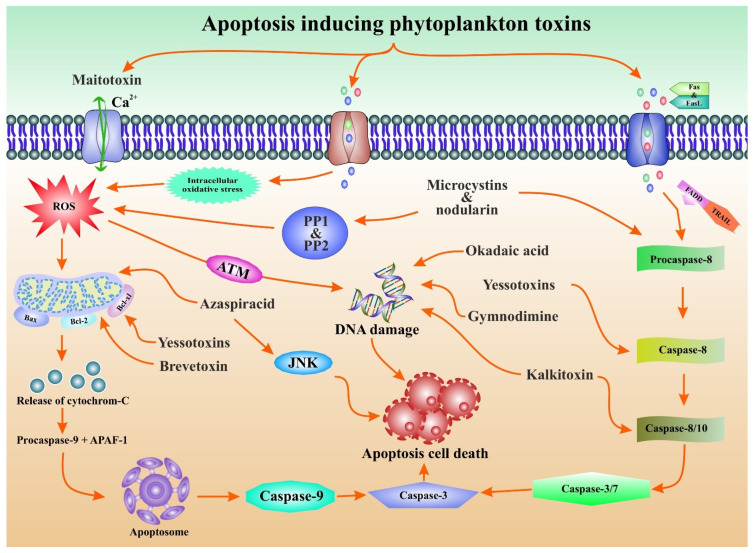Figure 4.
Apoptosis modulation by phytoplankton toxin in cancer prevention. Phytoplankton toxins such as azaspiracid, yessotoxins, and brevetoxins cause intracellular oxidative stress, which leads to mitochondrial dysfunction and downregulates the expression of anti-apoptotic proteins Bcl-xl and Bcl-2. Similarly, they enhance Bax expression to aid apoptosis via release of cytochrome-C, which triggers the formation of apoptosomes, leading to caspase 9 and 3 being induced and displaying apoptotic cell death. Microcystins and nodularin trigger the induction of caspase and display caspase-dependent apoptotic cell death. Moreover, microcystins and nodularin inactivate PP1 and PP2, which leads to excessive ROS. Excessive ROS enters into the ATM signaling pathways, which leads to DNA damage and displays apoptotic cell death. In addition, yessotoxins, gymnodimine, kalkitoxin, and okadaic acid trigger DNA damage, leading to apoptotic cell death. Kalkitoxin also induced the activation of caspase 8/10 and caspase 3/7, displaying caspase-dependent apoptotic cell death. Moreover, Azaspiracid entered into the JNK pathway and displayed apoptotic cell death.

